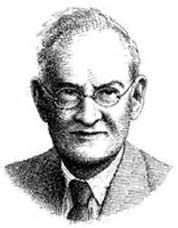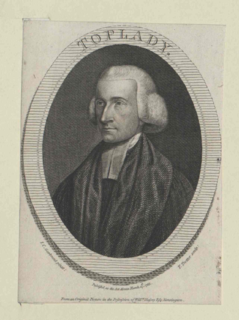A Quote by Sir Fulke Greville
There is in some men a dispassionate neutrality of mind, which, though it generally passes for good temper, can neither gratify nor warm us: it must indeed be granted that these men can only negatively offend: but then it should also be remembered that they cannot positively please.
Related Quotes
The establishment of inner harmony is to be attained neither in the past nor in the future, but where the past and future meet, which is the now. When you have attained that point, neither future nor past, neither birth nor death, neither time nor space exist. It is that NOW which is liberation, which is perfect harmony, to which the men of the past and the men of the future must come.
I know some say, let us have good laws, and no matter for the men that execute them: but let them consider, that though good laws do well, good men do better: for good laws may want good men, and be abolished or evaded [invaded in Franklin's print] by ill men; but good men will never want good laws, nor suffer ill ones.
In handling men, there are three feelings that a man must not possess-fear, dislike and contempt. If he is afraid of men he cannot handle them. Neither can he influence them in his favor if he dislikes or scorns them. He must neither cringe nor sneer. He must have both self-respect and respect for others.
The most delicate beauty in the mind of women is, and ever must be, an independence of artificial stimulants for content. It is not so with men. The links that bind men to capitals belong to the golden chain of civilization,--the chain which fastens all our destinies to the throne of Jove. And hence the larger proportion of men in whom genius is pre-eminent have preferred to live in cities, though some of them have bequeathed to us the loveliest pictures of the rural scenes in which they declined to dwell.
In this external world, which is full of finite things, it is impossible to see and find the Infinite. The Infinite must be sought in that alone which is infinite, and the only thing infinite about us is that which is within us, our own soul. Neither the body, nor the mind, nor even our thoughts, nor the world we see around us, is infinite.
There is no talent so useful toward rising in the world, or which puts men more out of the reach of fortune, than that quality generally possessed by the dullest sort of men, and in common speech called discretion; a species of lower prudence, by the assistance of which, people of the meanest intellectuals, without any other qualification, pass through the world in great tranquillity, and with universal good treatment, neither giving nor taking offence.
I infer that God's decrees, and the necessity of event flowing thence, neither destroy the true free-agency of men, nor render the commission of sin a jot less heinous. They neither force the human will, nor extenuate the evil of human actions. Predestination, foreknowledge, and providence, only secure the event, and render it certainly future, in a way and manner (incomprehensibly indeed by us; but) perfectly consistent with the nature of second causes.
Did it ever occur to you, that there is no conflict of interests among men, neither in business nor in trade nor in their most personal desires if they omit the irrational from their view of the possible and destruction from their view of the practical? There is no conflict, and no call for sacrifice, and no man is a threat to the aims of another if men understand that reality is an absolute not to be faked, that lies do not work, that the unearned cannot be had, that the undeserved cannot be given, that the destruction of a value which is, will not bring value to that which isn't.
What I mean by Socialism is a condition of society in which there should be neither rich nor poor, neither master nor master's man, neither idle nor overworked, neither brainslack brain workers, nor heartsick hand workers, in a word, in which all men would be living in equality of condition, and would manage their affairs unwastefully, and with the full consciousness that harm to one would mean harm to all - the realisation at last of the meaning of the word 'commonwealth.'


































